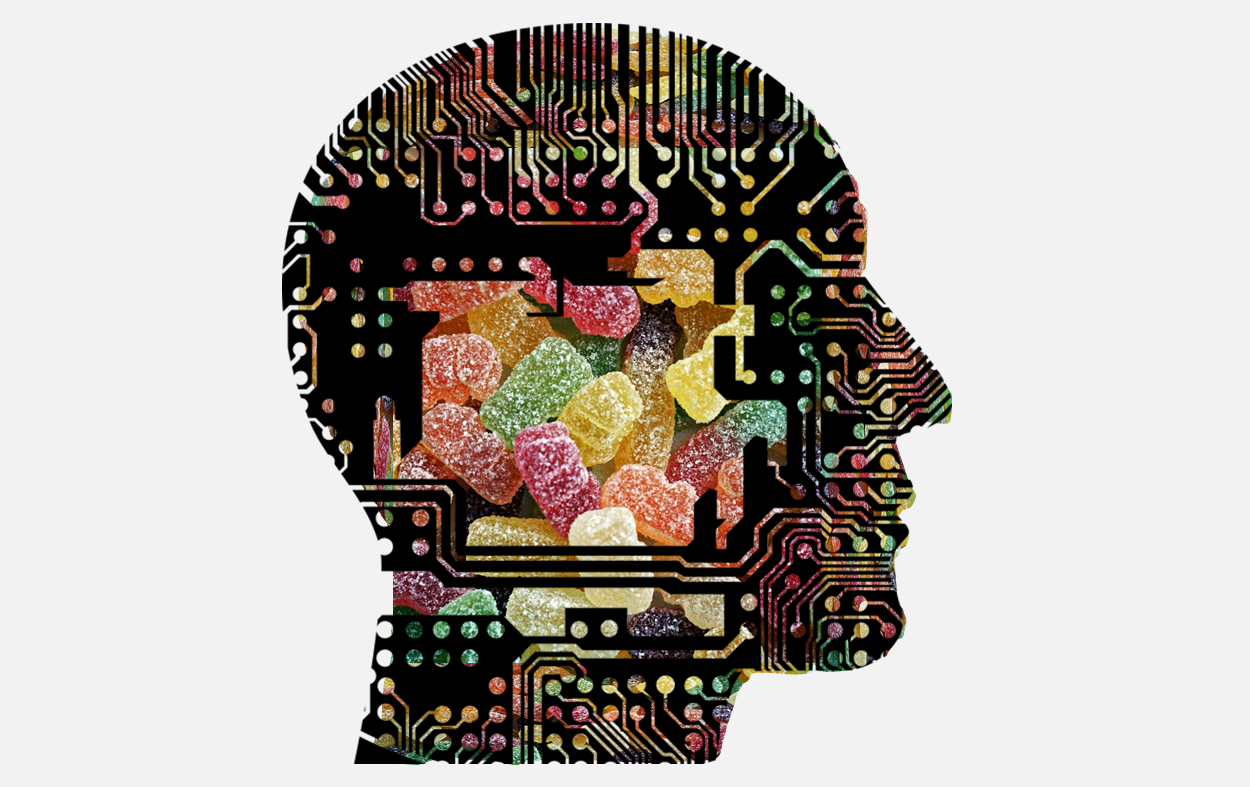The bad science: Shark cartilage as a cancer therapy
What do they claim? They claim shark cartilage can prevent or cure cancer.
Are they trying to sell you something? Of course, and it’s not cheap.
Is any of this true? The suggestion that shark cartilage could cure or prevent cancer seems to have originated from the belief that sharks don’t get cancer at all. There are two things wrong with this: First, just because another organism has a biological or physiologic attribute that we as humans may admire, this does not mean that EATING that organism will confer upon you or I these attributes. Here are some examples:
- Eating lots of turkey will not allow a human to fly (yes, turkeys can fly, albeit poorly)
- Eating an owl will not give you night vision or allow you to turn your head all the way around Exorcist-style.
- No matter how many plants you eat, your body will never produce chlorophyll allowing you to make your own energy from the sun.
The Internet Wants to Know:

In short: it truly depends on … You.
An artist, a science fiction writer, a heavy metal guitarist, a surgeon, a mad scientist, or your local FedEx delivery driver will have different perspectives towards alcohol indulgence. Your family physician wouldn’t recommend his patients or you drinking large amounts of alcohol, because physicians witness and treat the physical and mental illnesses related to alcohol abuse. On the other hand, there is published literature showing that alcohol has been prominent in the lives of highly creative people including artists, writers, and musicians. However, from a toxicological perspective, this issue is often raised as a question of whether there is a specific “dose” of alcohol that could clearly delineate the line between the adverse and beneficial effects on a person’s overall health and wellbeing – but there isn’t a single dose that balances those effects for every person.Continue reading…
 Ridiculous question from the internet: I swallowed an ice cube, and I haven’t pooped it out?
Ridiculous question from the internet: I swallowed an ice cube, and I haven’t pooped it out?
Source of said ridiculous question: Yahoo Answers
Science’s answer: Ice melts at 32ºF, or 0ºC. Your body temperature is approximately 98.6ºF, or 37ºC. I can’t believe I’m going to say this… ok, here it goes… 98.6ºF is warmer than 32ºF, so the ice melted. There, I said it. No one should feel good about this. You actually did excrete the ice in question, but it came out as water, likely as urine, but also potentially as sweat, water vapor you exhaled and yes, maybe also as part of a “poop”.

In fairness, this is a picture of a bristle worm, a deep sea creature that is not a human parasite. However, sometimes dank memes transcend taxonomy.
But seriously researchers are developing vaccines for parasitic disease like malaria tho: http://dx.doi.org/10.1016/j.vaccine.2015.09.057
We hear the words “toxin” and “toxic” thrown around an awful lot lately. It seems like toxins are vaguely blamed for many of the health issues in modern society – nearly every other product claims to “cleanse” or otherwise eliminate them. But what toxins are people referring to? What exactly is a “toxin” anyway? Useyourbrainforscience.com is here with the answers.
Let’s start with some basic science. Broadly speaking, a toxin is defined as any poisonous substance that is made by an organism (animal, pant, bacteria, etc). These toxins are often made as a defense mechanism – like snake venom, or nicotine, which is an effective insecticide for the tobacco plant. However, these are not really the toxins that most people are worried about, because many of the toxins affecting human health (or thought to) are man-made. It’s probably better just to say that a toxin is any poisonous substance. Makes sense, right? But what is poisonous in this context?
Glad you asked. I’m a professional toxicologist, and toxicology is the study of poisons, so I spend a lot of time thinking about this question, and there is a very clear scientific answer. The answer is: everything. Everything is poisonous (or toxic) at a high enough dose. This is where we get the phrase “the dose makes the poison.” Water is probably the least toxic substance known to man, but you can die from water poisoning just as easily as you can from drinking a mercury cocktail – it just takes more water to kill you than mercury. Therefore, water is less toxic than mercury – but both are toxins under the right circumstances. Of course, this doesn’t mean you shouldn’t drink water – most of us could probably stand to drink more water and less soda or coffee.
So it really depends on where you draw the line. How toxic is too toxic? Here’s a handy ranking of some common substances and how they stack up against some prototypical “toxins.” The list is presented in terms of how many grams of the substance you would need to consume per kilogram of body weight. For example: you’d have to consume about 90 grams of water for every kilogram of your body weight (and do it quickly!) in order to reach potentially lethal water levels.

Welcome to Ask a Scientist, where we answer questions from our readers on a wide range of scientific topics. Got a scientific question? Drop us a line.
Why does sugar make kids hyper? Is it really a “sugar high”? – KT, Stratford, CT
The belief that sugar makes kids “hyper” has been around for many, many years. Everyone knows this is true, right? It’s been a staple of family sitcoms for generations, after all. Except it’s completely false.
Not only is the idea “sugar makes kids hyper” not true, we’ve known that it isn’t true for a long time. This was the research focus of Dr. Mark Wolraich in the early 1990s and he clearly demonstrated that eating sugar does not lead to hyperactivity in children – neither right after eating a high-sugar treat nor when eating a high-sugar diet over time. Dr. Wolraich and his group even took their investigation a step further, asking why parents always associated high sugar intake with hyperactivity. The answer: observation bias.Continue reading…








